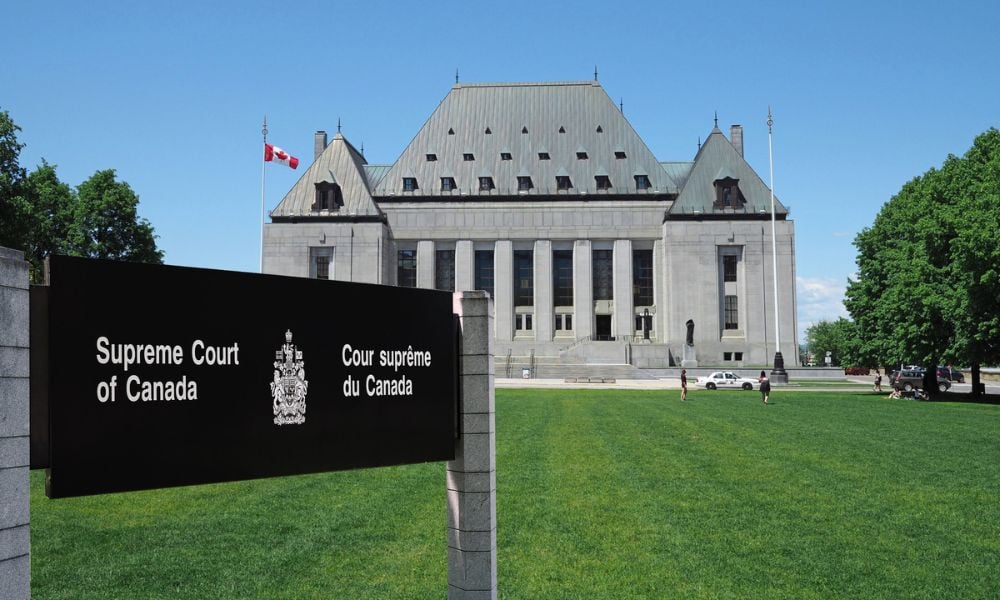Court restores two criminal convictions

Breaking the rule against ungrounded common-sense assumptions is not an error of law for the purposes of appellate review, the Supreme Court of Canada has found.
In a decision released this morning, the court dealt with two sexual assault appeals where appellate courts set aside the convictions and ordered new trials because the trial judges had broken the rule in their credibility and reliability assessments. The rule against ungrounded common-sense assumptions prohibits judges from using generalizations and common sense to make speculations that are not grounded in the evidence before them.
With reasons written by Justice Sheilah Martin, the SCC allowed the Crown appeals and restored the convictions. The court agreed with the Crown that when common sense assumptions form an aspect of a trial judge’s credibility and reliability assessments, they should be reviewable only for palpable and overriding error, not correctness. The court found no such errors in the trial judges’ assessments.
Most Read
R. v. Kruk, 2024 SCC 7 is another example of the SCC limiting the powers of courts of appeal to review convictions, says Richard Fowler, counsel for one of the respondents. The court noted that trial judges are much better placed to assess credibility and reliability because appeal courts rely on written transcripts rather than in-person witness testimony.
“The problem with that is that the Supreme Court of Canada has also said in other cases that impressions about somebody's demeanour should have very little impact on an assessment of credibility because, of course, our impressions of demeanour are singularly unreliable,” he says. “It doesn't make any sense – to me, anyway – that we should pay so much deference to a single judge’s assessment of credibility based on, essentially, our impressions of how a witness testifies as opposed to what they actually say.”
Throughout Fowler’s practice, during which he has done many appeals, he has been concerned about the degree to which appellate courts defer to trial judges on credibility. Limiting the powers of courts of appeal is not a good way to limit the risk of wrongful convictions, he says.
There are rules against reasoning based on several myths and stereotypes about sexual assault complainants, and reasoning based on these myths and stereotypes is an error of law. Martin distinguished the proposed rule against unfounded common-sense assumptions from these legal errors by stating that the former “does not relate to specific, identified, erroneous generalizations about a specific category of witness, nor does it protect elements of an offence from taking on a distorted meaning.” She said the proposed rule “lumps together the sorts of pernicious, discriminatory stereotypes that both the courts and Parliament have worked to condemn and correct with more benign generalizations that, while they may be factually wrong, have nothing to do with inequality of treatment.”
Martin said that the proposed rule would also open a back door to prohibited twin-myth reasoning, the view that a sexual assault complainant’s sexual history with the accused makes them either more likely to consent to the sexual activity in question or makes them less credible. She said the rule would also interfere “with the necessary recourse to common sense as a part of testimonial analysis” because it is impossible to differentiate between “using human experience to interpret evidence or draw inferences” and “introducing new considerations into the evidence.” Only the former would be permissible.
To recognize such a rule, Martin said, would also widen the scope of appellate intervention into trial judges’ reliability and credibility assessments, which – especially in sexual assault cases – are often a criminal trial’s “most important and difficult judicial determinations.” Credibility and reliability findings can be overturned over errors of law on a correctness standard. But in most cases, she said it is preferable to review them with “nuanced and holistic standard of palpable and overriding error,” which defers to trial judges, who have “direct exposure to the witnesses themselves and have expertise in assessing and weighing the facts.” Martin said credibility and reliability assessments are more difficult for appellate courts, which review written transcripts of testimony and often focus on narrow issues rather than viewing “the case and the evidence as a whole.”
“Invoking the proposed rule, appellate courts have been invited to parse trial reasons, attack generic statements made in the course of credibility assessments, and frame any credibility findings based on human behaviour as impermissible stereotype or common‑sense assumptions untethered to evidence,” said Martin. “The jurisprudence in this area is variable, even volatile, and evinces the need for a more consistent approach to appellate review.”
If there is no error of law, appellate courts must review credibility and reliability assessments under the standard of palpable and overriding error, she said.
While many judges rely on common-sense assumptions in sexual assault cases, Fowler says it is not an effective benchmark to assess how people behave in the context of sexual relations. This is especially the case, he says, because sexual behaviour changes from generation-to-generation, and sexual assault cases typically involve a judge adjudicating the behaviour of a much younger person.
“I am very concerned about that continuing reliance on something as nebulous as common sense as a benchmark for making those kinds of determinations.”
Fowler notes that courts have relied on common sense in the past in ways that adversely impact complainants, which has been rightfully reversed.
“It simply shows that common sense is a terribly poor benchmark for an assessment of credibility.”










